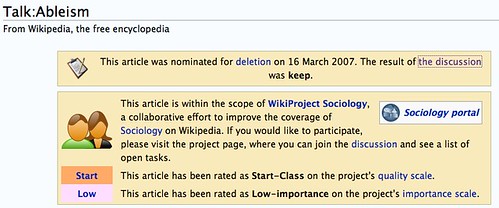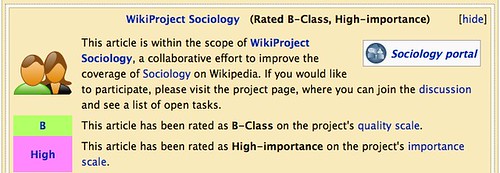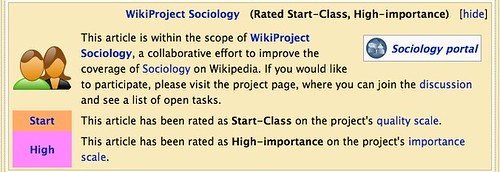
Image Description: A banner that has an image of Helen Keller in the center. On on side it reads: Political Activist. Radical Thinker. Suffragist. Pacifist. Journalist. Socialist. Who was she? On the other side it reads: Helen Keller Mythbusting Day 2010″
I learned that Second Life and Virtual Helping Hands are hosting a Helen Keller Day on Second Life on June 19th.
Helen Keller Day is a day set aside for information acquisition, education, exploration of employment opportunities, social engagement, and enjoyment of arts and entertainment. There will be vendors, employers, presentations, and pure, unbridled fun.
I think this is awesome. If I played Second Life, I would be all over this.
It did get me thinking a lot about Helen Keller, and the way people talk about her and use her legacy – something I’ve discussed on FWD before, in Feminist Icons and Subverting the Narrative.
A few years ago someone on a feminist site posted a list of the top 100 historic women in the US, and the list included Helen Keller. A commenter mentioned being surprised to find that out, because… well, what did Helen Keller actually do?
The answer to that question is what this Blogswam is all about.
What’s a blogswarm?
On the appointed day (or there abouts) – in this case, June 19 – people post about Helen Keller. Ideally, they’ll link back to a master post (which I will be hosting here on FWD) and leave a link indicating their participation on the master post. Then, people will be able to see lots of posts about Helen Keller in a variety of places from a variety of points of view.
Okay, but I don’t know much about Helen Keller. Are there some resources so I can learn?
Yes!
- Her wikipedia page is surprisingly good, at least as of today.
- The Helen Keller Kids Museum has interesting facts presented in an engaging way.
- The Encyclopedia of Alabama has a good write up.
- The National Women’s Hall of Fame has a short summary.
This is just a very short list. Your local library may have many books. I never resist the chance to push Lies My Teacher Told Me by James A Loewen, which talks about Keller in the first chapter. The American Foundation for the Blind has a selected Bibliography of books by and about Keller, but I have not read them so I have no personal opinion on them.
But there are other women with disabilities connected to Helen Keller’s life, and I don’t think they get enough attention either. Can I write about them as well as or instead of Keller and still participate?
Yes! In fact, I think it’s an important part of the mythbusting about Keller to talk about Anne Sullivan, who was blind for parts of her life, Polly Thomson, who was a companion and aid to both Sullivan and Keller in later years, and Laura Bridgman, who was also deaf & blind and was “famous” before Keller. And this list is pretty US-centric, and entirely white. Bust the myth that the only women with disabilities doing anything of interest in the nineteenth and twentieth centuries were white women from the US! A very short list: Frida Kahlo, Jhamak Ghimire, Ragnhild Kåta, Theresa Ducharme…
I also think that it’s relevant to talk about Keller’s legacy, and how the treatment of her story – in productions like The Miracle Worker and the oft-repeated story of “the hand in the water” – affect perceptions of people with disabilities, especially blind and d/Deaf people, today. Brownfemipower linked to this discussion of Blind Rage and the Legacy of Helen Keller on TheGimpParade, as an example.
I’m really not up to participating, but I want to be supportive. What can I do?
Spread the word! Tell a friend! Read posts! Link others to posts! Bust your own myths, so that the next time someone says something ignorant about Keller or the work she did, you can gently (or not!) correct them.
I want to participate! But I don’t know if I can on June 19th.
Then write something on another day. The reason I suggest doing it all on the same day is because blogswarms will push across the blogosphere and people will notice them all at once. But please don’t feel obligated or that you’ve “failed” if you don’t write something about Mythbusting on the day.
Also, don’t feel you have to write something new. If you’ve previously written something about this and would like it to get some more attention, feel free to link it as well.
So, now what?
Well, on June 19th I’ll post up an open post about Helen Keller Mythbusting Day here on FWD. Folks can drop their links in right away – my goal is to have it open as early on the 19th as possible. Check back throughout the day to see what posts people have written!
I hope to see lots of awesome posts on June 19th!






